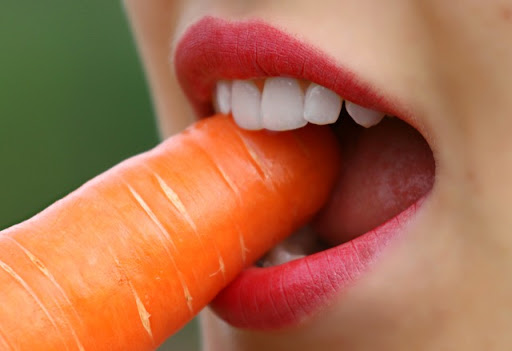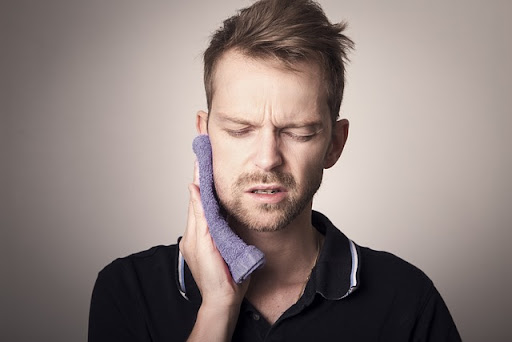Have you ever tried to bite into a carrot or a piece of fruit and really struggled? Does your jaw feel tired and achy after eating something chewy? Do you have difficulty opening your mouth really wide, or does your jaw “pop” when you do? While these may seem like minor inconveniences or discomforts, they could be a sign of something more serious and can be an indication of bite alignment issues
Take Action
If you experience any of the symptoms listed above, you should talk to your dentist right away.
Your dentist will do an evaluation to determine if you have a misaligned bite. Severe misalignments can cause problems with eating, drinking, speaking, and even breathing. This can cause your teeth to become wobbly, develop decay, or become easily damaged during an accident. It can also cause psychological problems if it makes you feel self-conscious or unattractive and causes you to avoid social situations.
Treatment
At Carolina Family Dentistry, Dr. Banik uses the Kois Deprogrammer to treat bite misalignment. Dr. Banik is a graduate of the prestigious Kois Center, one of the premier dental learning institutions in the world. The Kois Deprogrammer was developed by Dr. John C. Kois, D.M.D., M.S.D, as a tool to help dentists improve even the most challenging bite misalignments.
The Kois Deprogrammer is a removable appliance that is used to evaluate the stability of your bite. It looks very much like a retainer and should only be removed for meals and teeth cleaning. The device helps locate your optimal jaw position and should be worn for about one month until your old muscle memory is erased. Dr. Banik will evaluate your bite alignment to determine the amount of time needed to correct the misalignment. Once your bite is realigned and your lower jaw returns to a more comfortable position, Dr. Banik will provide you with options for maintaining your new bite.
Is It Painful?
The Kois Deprogrammer is designed to fit comfortably in your mouth. There may be some minor discomfort or soreness when you first start wearing it, but this should disappear after a few days. It may also take a few days for you to adapt to speaking while wearing it, but this only lasts for a very short time.
Follow Up
It is important to follow up with Dr. Banik after treatment and follow the recommendations for maintaining your new bite. Failure to do so could result in your chewing system reverting back to your old bite alignment in a very short amount of time.
Don’t Delay
Why go even one more day with jaw pain and difficulty chewing, speaking, or breathing? Contact Carolina Family Dentistry today to set up an appointment to discuss whether a Kois Deprogrammer is right for you.








